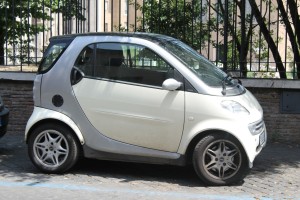More than Gears: The Brave New World of Connected Cars
This article may contain affiliate links.
We’re all starting to become more eco-minded—perhaps out of necessity. I appreciate cleanfleetreport.com for allowing me to weigh in on the conversation about new cars and their impact on our lives. When you finish reading, start planning your next EV trip with their article “Look at Where You Can Go On a full charge.â€

The term “smart†has become indicative of any device that is connected to the internet. It implies a sense that other devices are “dumb†and thus inferior. While it may have been coined as a marketing term to sell you more goods, there’s some truth of the convenience offered by these “smart†devices.
Smart cars are a more recent addition to the line-up and have features that range from helping avoid accidents to performing diagnostic work while on the go to providing a Wi-Fi connection. Similarly, internet providers are offering a variety of packages, such as the Cox internet plans, that promise multiple ways to keep connected. With the high cost of new cars, it’s only expected that they would be able to incorporate this rapidly expanding connectivity.
But there may be a darker side to our newest toys. Because of their increasing reliance on the internet, they are also vulnerable. Not simply to failure, but to being overtaken or hacked. Being online means becoming a target to hackers.
So what exactly does that mean? Some forms of hacking are benign, resulting in little more than a nuisance (turning your lights on and off, locking and unlocking the doors), but in the past year there has been evidence that some vehicles can actually be completely taken over, including the brakes and acceleration.
The First Demonstration
Chrysler was the first to demonstrate this vulnerability—thankfully through the use of White Hat hackers. The problem in their system has since been fixed, but their Jeep Cherokee is just one of many cars to join the smart revolution. Your car could be next, and its manufacturer may not have beefed up its security.

So what can you do about it? Not much—unlike personal devices such as your computer or smartphone, you can’t easily modify your car’s computer. Your best bet is visiting your dealer regularly and trying to keep the software as up-to-date as possible. Some updates will require an in-person visit, while others may take place automatically.
If your car is using Wi-Fi, the password is probably nothing special. As a result (especially if you can’t change it), your best bet is to secure any of your devices that connect to said Wi-Fi. Make sure you have anti-virus software installed on everything from your smartphone to your laptop to get rid of malware.
Protect your connection by using a Virtual Private Network (VPN), which will encrypt your internet connection and hide your IP address from hackers. It wouldn’t do if one of your compromised devices became the Trojan horse that infiltrated your smart car.
Your coin purse can be a great way to influence manufacturers as well; if consumers demand “smarter†cars, that’s exactly what companies will produce. Make sure if you do buy a smart car that it promises the best security from internet threats.
Conversely, if your paranoia is still not set at ease, the option always exists to just drive a “dumb†car. You’ll be missing out on all the latest and greatest features, but at least security won’t be much of a concern.

2 thoughts on “Tech: Smart Car Cybersecurity”